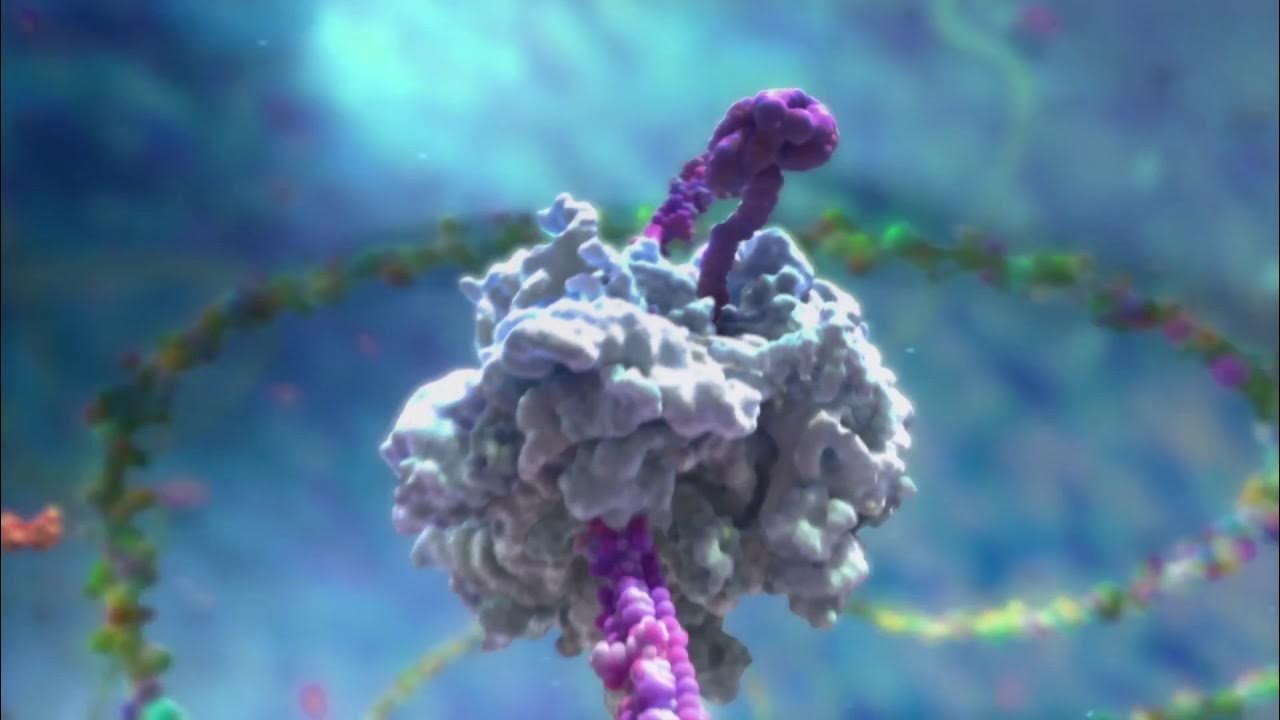Introduction to Biotechnology | Don't Memorise
Summary
TLDRThis script delves into the world of biotechnology, illustrating its applications through lactose-free products, wine production using yeast, and the development of the hepatitis B vaccine. It highlights how biotechnology has revolutionized medicine and food production, with the introduction of Golden Rice—a genetically modified organism enriched with vitamin A to combat deficiencies. The video promises to explore more on GMOs in future episodes, inviting viewers to learn about the innovative intersection of biology and technology.
Takeaways
- 🥛 Lactose intolerance is a common issue, leading to the development of lactose-free products.
- 🧬 Biotechnology is the application of biological organisms or processes for human benefit.
- 🍞 Bread making is an example of classical biotechnology, utilizing yeast for fermentation.
- 🍇 Wine production involves the use of yeast to convert grape juice into wine, showcasing the use of a complete organism in biotechnology.
- 💉 The hepatitis B vaccine is an example of biotechnology in medicine, with a recombinant version that is synthetic and less painful to produce.
- 🛡️ The recombinant hepatitis B vaccine is considered a boon to health, reducing the risk of liver cancer.
- 🌾 Golden Rice is a genetically modified organism (GMO) that contains beta-carotene, which is converted to vitamin A in the human body.
- 👀 Vitamin A deficiency can cause vision problems, and Golden Rice aims to address this by providing a dietary source of the vitamin.
- 🌱 The modification of rice to create Golden Rice is a biotechnological achievement, targeting areas with high vitamin A deficiency.
- 🔬 Biotechnology has numerous applications, including food production, medicine, and the creation of hybrid crops.
- 📚 The script encourages further learning about biotechnology and GMOs through upcoming videos.
Q & A
What is lactose and why is it removed from some food products?
-Lactose is a natural sugar found in milk. It is removed from certain food products because many people have lactose intolerance, which is a digestive disorder caused by the inability to digest lactose properly.
What is biotechnology and how does it relate to lactose-free products?
-Biotechnology is the use of organisms, parts of organisms, or biological processes for the benefit of mankind. It relates to lactose-free products because advancements in biotechnology have made it possible to produce lactose-free consumables for people with lactose intolerance.
Can you provide an example of biotechnology in food production?
-An example of biotechnology in food production is bread making. Yeast, an organism, is added to the dough to release chemicals through fermentation, resulting in the soft and fluffy texture of bread upon baking.
What is the significance of fermentation in biotechnology?
-Fermentation is significant in biotechnology as it is a classical biotechnological process that involves the use of organisms to produce desired products, such as food items, medicines, and hybrid crops.
How is wine production related to biotechnology?
-Wine production is related to biotechnology through the use of yeast, a microorganism that feeds on the sugars in grape juice, producing alcohol and carbon dioxide as byproducts, thus converting grape juice into wine.
What is the hepatitis B vaccine and how has biotechnology impacted its production?
-The hepatitis B vaccine is a preventative measure against hepatitis B virus infection. Biotechnology has allowed for the development of a recombinant hepatitis B vaccine, which is synthetically made using a small part of the pathogenic virus, improving safety and efficiency in production.
How does the recombinant hepatitis B vaccine differ from the traditional version?
-The recombinant hepatitis B vaccine differs from the traditional version in that it is synthetically produced using a part of the virus, rather than being derived from the blood of infected humans, reducing the risk of adverse reactions and making production less painful and more efficient.
What is Golden Rice and how is it related to biotechnology?
-Golden Rice is a genetically modified variety of rice that is yellowish in color due to the presence of beta-carotene, which is converted into vitamin A in the human body. It is an example of biotechnology as it was developed to address vitamin A deficiency in populations where rice is a staple diet.
Why is beta-carotene important in Golden Rice?
-Beta-carotene is important in Golden Rice because it is a precursor to vitamin A, which is essential for good vision and overall health. The inclusion of beta-carotene in rice helps to combat vitamin A deficiency in regions where rice is a primary food source.
What are genetically modified organisms (GMOs) and how do they relate to Golden Rice?
-Genetically modified organisms (GMOs) are organisms whose genetic material has been altered using genetic engineering techniques. Golden Rice is an example of a GMO, as it has been modified to include genes that produce beta-carotene, thereby enhancing its nutritional value.
What can we expect to learn about GMOs in upcoming videos?
-In upcoming videos, viewers can expect to learn more about what GMOs are, their applications, benefits, and potential concerns, providing a deeper understanding of this aspect of biotechnology.
Outlines

This section is available to paid users only. Please upgrade to access this part.
Upgrade NowMindmap

This section is available to paid users only. Please upgrade to access this part.
Upgrade NowKeywords

This section is available to paid users only. Please upgrade to access this part.
Upgrade NowHighlights

This section is available to paid users only. Please upgrade to access this part.
Upgrade NowTranscripts

This section is available to paid users only. Please upgrade to access this part.
Upgrade NowBrowse More Related Video

Using Genetic Engineering to Make Vaccines

The beneficial bacteria that make delicious food - Erez Garty

21.Biotechnology & Genetic Modification(Part 1)(Cambridge IGCSE Biology 0610 for 2023, 2024 & 2025)

Food Production - Biotechnology - Yoghurt Production - GCSE Biology (9-1)

CBSE Class 12 Biology || Biotechnology Principles And Processes || Full Chapter || By Shiksha House

Enzyme Immobilisation-Leaving Cert Biology
5.0 / 5 (0 votes)